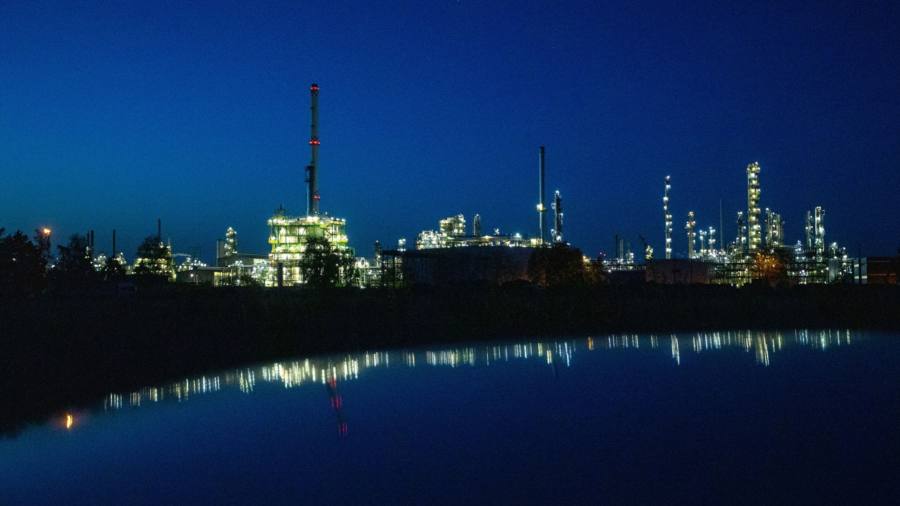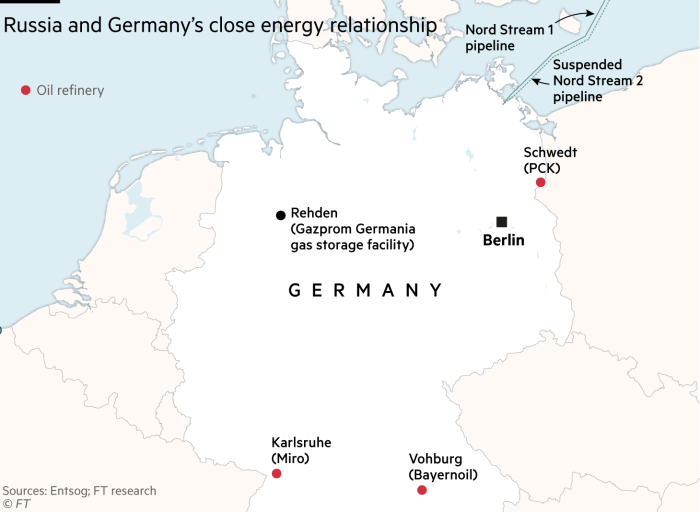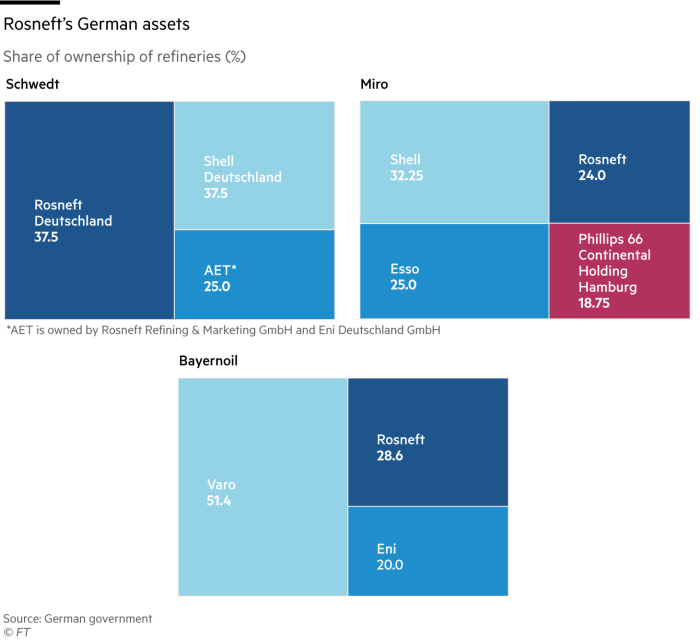
In May 2017, Rosneft chief executive Igor Sechin came to Berlin to outline a five-year plan to double the Russian oil company’s investments in German refining to €600mn.
Cut to 2022 and Rosneft’s assets have been taken over by the German government. Sechin’s dream of downstream expansion into Europe’s largest oil products market is in ruins, a victim of the escalating energy war between Russia and the west.
On Friday, the German government said it was seizing control of Rosneft’s stakes in three German refineries — PCK in Schwedt, north-east of Berlin, MiRo in Karlsruhe and Bayernoil in the Bavarian town of Vohburg.

Olaf Scholz, chancellor, said the decision was “unavoidable”. “We have known for a long time that Russia isn’t a reliable energy provider any more,” he said. “That’s why it’s important to do everything we can now to safeguard Germany’s energy supply.”
“Ultimately this is all about Germany rediscovering the need for energy security,” said Amrita Sen, an analyst at Energy Aspects. “Germany recognises its reliance on Russia has gone too far, and now, with the embargo coming in, there is little option left.”
Indeed the trigger for the takeover was the looming EU ban on imports of Russian oil, which comes into force on January 1 and could put massive pressure on Germany’s refining industry. Russia has already severed natural gas supplies to Germany threatening a deep recession in the country this winter.
Berlin has had some success in finding alternatives to Russian crude, but the Schwedt plant presented a problem: not only does it sit right on top of a Russian pipeline, the 4,000km-long “Druzhba” or friendship line, but it is also 54 per cent owned by Rosneft, a company with little interest in refining non-Russian oil at the site.
The government, which is placing the Rosneft stakes under the trusteeship of the federal energy regulator, the Bundesnetzagentur, said Russian ownership of Schwedt and the other two refineries jeopardised their business operations.
“Key, critical service providers such as suppliers, insurance companies, banks, IT companies, but also customers, were no longer prepared to work with Rosneft,” the economy ministry said.
It is all a far cry from Sechin’s press conference in 2017, which marked the opening of Rosneft Deutschland’s new Berlin office. It was a time when German-Russian relations were on an even keel and the Kremlin was still seen by many in Germany as a reliable partner.
The optimists were personified by Michael Harms, head of the Ost-Ausschuss, the principal lobby for German investors in Russia. Appearing next to Sechin, one of President Vladimir Putin’s closest confidants, he said Rosneft’s new Berlin representation was “proof of Russia’s unwavering commitment to the European market”.

German-Russian trade had, he added, “risen dramatically” in the first two months of 2017, and the expectation was that “it will grow by 10 per cent this year, if not more”.
Sechin echoed his assessment. The volume of trade between Russia and Germany had risen fourfold between 2000 and 2013 to €56bn, with German imports from Russia tripling to €27bn and German exports to Russia rising sevenfold to €29bn. “And it’s not just oil deliveries and oil refining, but also technological co-operation,” he said, alluding to the massive market Russia had become for German manufacturers.
Yet the warm words exchanged between Sechin and Harms ran counter to the prevailing mood in many western capitals. Russia had annexed Crimea just three years previously, a violation of international law that plunged east-west relations to their lowest point since the cold war. Europe and the US responded with sanctions, some of them aimed at Rosneft.
Instead of being hurt by the west’s punitive measures, the energy partnership between Russia and Germany intensified. Russia built a new pipeline under the Baltic Sea, Nord Stream 2, that would allow it to double the volume of gas exports to Europe, bypassing Ukraine. Germany backed the project despite warnings from the US and its allies in eastern Europe that it would increase the continent’s dependence on Russia.
The close energy relationship has its roots in a historic agreement between then West Germany and the Soviet Union in 1970, whereby the Germans paid for Soviet natural gas with exports of steel pipes.
The deal was underpinned by Ostpolitik, the policy of engagement with the Soviet bloc pursued by chancellor Willy Brandt in the late 1960s and 1970s.
But according to Thomas O’Donnell, a Germany-based energy analyst, it was also driven by a German desire for “strategic balancing — it was a way for Germany to break free from its dependence on the US”.
Many in the German establishment, he said, resented US dominance in energy matters and disliked “this idea of a global fungible market in oil that’s traded in dollars and protected by the US navy”. That resentment, he said, was one of the reasons why Germany kept out of the US war in Iraq in 2003. And it was why it suited Germany to have direct access to Russian oil and gas.
For decades the system worked well, with “long-term fixed assets like refineries and pipelines acting as the cement for the relationship,” said Henning Gloystein, an analyst at Eurasia Group.
Russian hydrocarbons flowed into Europe regardless of cold war tensions, and Germany was spared the expense of having to build costly liquefied natural gas terminals and other infrastructure to handle alternatives to Russian energy imports.
“But when your biggest supplier turns hostile, things break badly and they break quickly,” said Gloystein.
“The energy system Germany relied on for 40 years effectively lies in ruins, and they can no longer afford to leave these strategic assets in Russian hands.”

